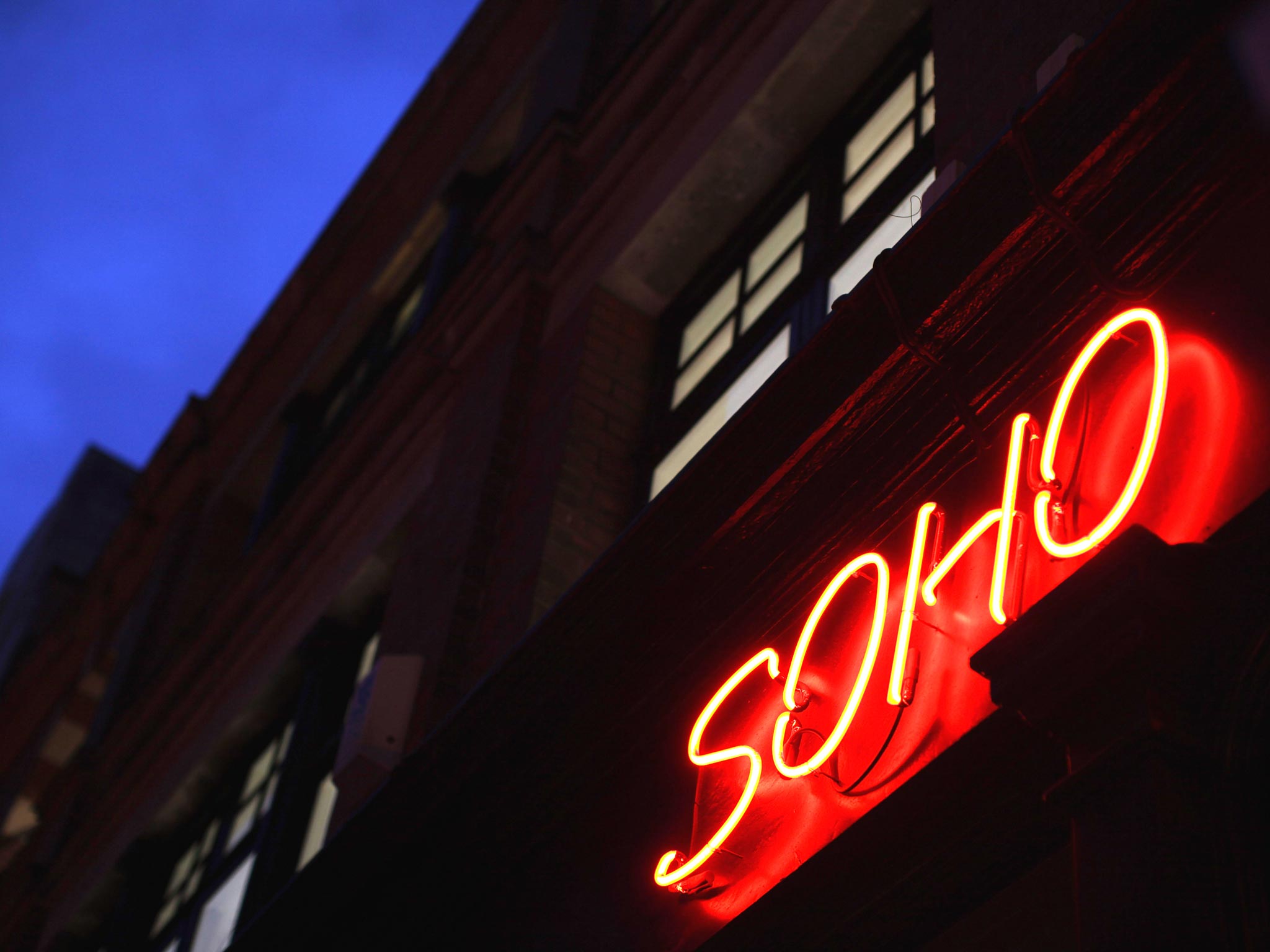Bordello backlash: First appeals fail against Soho brothel closures
Court rejects sex workers’ claims they were not being controlled and were safer than on streets

Two sex workers lost their legal battle against Scotland Yard on Monday after claiming that the mass closure of brothels in the heart of London’s red-light district put them at greater risk of attack.
Eighteen brothels were shuttered after raids following an undercover operation that was said to have revealed links to crimes including trafficking and rape. But at least six sex workers have fought the closures, claiming they had not been coerced into working and that closing the brothels would make their work more unsafe.
In the first of three appeals being heard over two weeks, two women Monday lost their battle to have their flats reopened after a judge found that unknown figures were “controlling” prostitution in the area. The judge, Judy Khan QC, cited the “bizarre” payments of daily rent left in a microwave, and a shift system in operation.
However, activists claim that Soho is one of the safest places for prostitutes to work as the flats are covered by CCTV and they work with “maids” who try to monitor customers. They warned that the raids made it more likely that women would find work on their own, either in flats or on the streets, where their lives were more at risk.
Dozens of officers were involved in the raids in December, in which women claimed they were forced on to the street in their underwear. The vicar for St Anne’s Church in Soho, who was briefed by police before the operation, said there was a “clear case” that something had gone “extremely wrong”.
In a report sent to the Bishop of London over the weekend, the Reverend Simon Buckley wrote that trust in the police had been severely undermined by the “seemingly ham-fisted” nature of the operation.
“The girls who continue to work in the unclosed flats say that they would not feel confident in turning to the police if they were a victim of crime,” he wrote. “Those who previously worked in the relative safety of the flats, and until 18 months ago had a good rapport with the police, are now forced to explore other means of supporting themselves. I am told this is most likely by working on streets outside Soho where they are far more vulnerable to abuse, attack and rape.”
Selling sex for cash is not a criminal offence but police can close brothels if they can show that women are being “controlled” by others. To get a brothel closed down for up to six months, police have to show, on the balance of probabilities, that someone is controlling the price that a prostitute charges, requiring them to work in a certain place, or dictating the number of customers they have to see.
At the time of the raid, Commander Alison Newcomb, in charge of policing in Westminster, said: “The next step will be to work to close a number of the brothels where we have evidence of very serious crimes happening, including rape and human trafficking.”
Police figures after the raids showed that 22 people had been charged with offences that included the attempted handling of stolen goods. Scotland Yard was not able to say if anyone had been charged with rape or human trafficking.
Monday’s failed legal challenge followed the killing last month of Maria Duque-Tunjano, 48, who was beaten to death while she worked alone at a flat in west London. She was the 142nd sex worker to have been killed since 1990.
Niki Adams of the English Collective of Prostitutes said: “The policing of prostitution is an absolute disaster.”
A man has been charged with Ms Duque-Tunjano’s murder.
